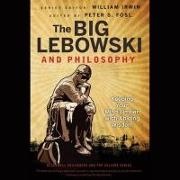Read more
Is the Dude a bowling-loving stoner or a philosophical genius living the good life? Naturally, it's the latter, and
The Big Lebowski and Philosophy explains why. Enlisting the help of great thinkers like Plato and Nietzsche, the book explores the movie's hidden philosophical layers, cultural reflection, and political commentary. It also answers key questions, including: The Dude abides, but is abiding a virtue? Is the Dude an Americanized version of the Taoist way of life? How does
The Big Lebowski illustrate the Just War Theory? How does bowling help Donny, Walter, and the Dude oppose nihilism? Yes, the Dude is deep, and so is this book. Don't watch the movie--or go to Lebowski Fest--without it. ● Explores many of
The Big Lebowski's key themes, such as nihilism, war and politics, money and materialism, idealism and morality, history, and more ● Gives you new perspective on the movie's characters--the Dude, the Big Lebowski, Walter Sobchak, Donny, Maude Lebowski, Bunny Lebowski, and others ● Helps you appreciate the Coen Brothers classic even more with the insights of Aristotle, Epicurus, Kant, Derrida, and other philosophical heavyweights
About the author
William Irwin is Herve A. LeBlanc Distinguished Service Professor and Chair of Philosophy at King's College, Pennsylvania. Irwin's latest book is The Free Market Existentialist: Capitalism without Consumerism (2015). Irwin's first book, Intentionalist Interpretation: A Philosophical Explanation and Defense (1999), was nominated for the American Philosophical Association Young Scholar's Book Prize. Irwin is best known for having originated the philosophy and popular culture genre of books with Seinfeld and Philosophy (1999), The Simpsons and Philosophy (2001), and The Matrix and Philosophy (2002). He was editor of these books and then General Editor of the Popular Culture and Philosophy Series through Open Court Publishing. In 2006, Irwin left Open Court to become the General Editor of The Blackwell Philosophy and Pop Culture Series, which includes Metallica and Philosophy (2007)and Black Sabbath and Philosophy (2012), among other volumes. Irwin first theorized the philosophy and pop culture genre in his article Philosophy as/and/of Popular Culture in Irwin and Gracia eds. Philosophy and the Interpretation of Popular Culture (2006).

